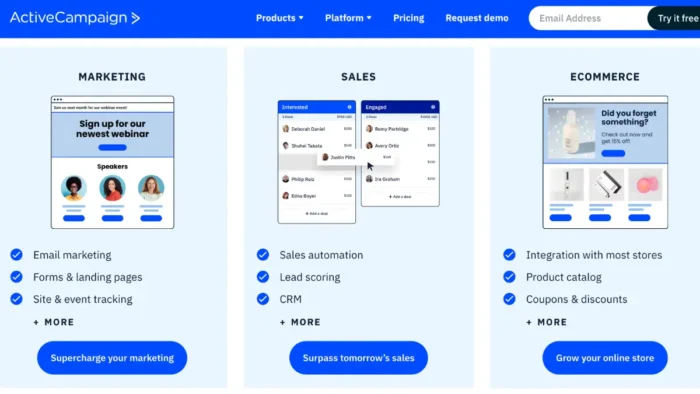The controversy over Nike’s recent Colin Kaepernick ad campaign became a little too personal for a Louisiana school teacher this month when she lost her job over a Facebook post commenting on the ad. Slidell High School teacher Valerie Scogin reacted to another poster’s comment in the Facebook stream of a Slidell High graduate, making a racially-charged comment that she has since apologized for. Scogin had previously taught math at the school for 10 years. Due to the school’s personnel policies, it is not known whether she was fired or resigned. Your private social media profiles can bring you problems.
Stories like this about employees losing their jobs or damaging their reputations over social media posts are unfortunately all too common. Business owners can also suffer from mixing business and personal interests online, both from their own posts and from posts made by their employees. Here are some tips for professionals on how to keep your business and personal social media activity separate.
Create Separate Social Media Profiles
Creating separate profiles for personal and business profiles lays a foundation for an effective social media management strategy, says Hamilton County Business Magazine columnist Susan Young. Most leading social media platforms provide tools to help keep business and personal profiles separate.
For instance, Facebook lets you create a personal profile as well as a business page, allowing you to switch back and forth between profiles from within a single account. You can also create multiple accounts to keep your social media profiles separate. If you’re a business owner, you can have employees set up separate business profiles distinct from their personal profiles.
Related: Tips to Keep Your Business and Personal Finances Separate
When creating separate profiles, each profile should have its own distinct branding identity, says Actionable Marketing Guide chief content officer Heidi Cohen. For instance, you may wish to spell out your full name and use your middle initial on your professional profile, while using a nickname on your personal social media profile.
Business profiles should use professional-quality photographs that present an image appropriate for business purposes, whereas personal profiles can show a touch of personality or include other family members. Business biographies should also be geared toward your business persona. Finally, the people you connect with on your business account may be different than the people you connect with on your personal account.
Related: How to Use Facebook for Business: Facebook Marketing Tips and Tricks
Don’t Mix Business with Pleasure
The type of content you post on your personal and business social media profiles should also be distinct, says OutboundEngine customer success representative Will Mouradian. Personal profiles are meant for purposes such as keeping up with family and friends on a daily basis, posting personal stories and photos, and sharing the content of personal interest.
Related: How Facebook Profile Can Help Your Business Grow
In contrast, business profiles are meant to establish your brand identity and promote your company and should have posts relevant to your company, such as company news updates, reviews of your company, and links to articles and videos relevant to your industry or customer base.
For example, Microsoft uses its Facebook page to share news and consumer conversation about its products and services and other content of interest to the company’s customers. Amway uses its LinkedIn page to share news about its company, tips for entrepreneurs, job postings, and other information relevant to the entrepreneurs who form the company’s customer base.
While the business and personal content should generally be distinct, this doesn’t mean you can never post content from one type of profile on the other. For instance, occasionally sharing updates about your business on your personal profile can be a useful networking and prospecting strategy, while periodically posting personal content on your business page can add a human touch to your branding.
However, be prudent about what type of personal content you share on your business page, considering how the content you share may impact your branding image. As a general rule, share content that improves your likeability while avoiding controversial content that might alienate customers. By the same token, consider what business content is appropriate for sharing on your personal page. For instance, constantly posting business-related posts on your personal pages may annoy your friends by making it seem like you’re always trying to sell them something.
Be Aware You’re Living in a Glass House
No matter how much you try to separate your personal and business profiles, be conscious that your profiles aren’t isolated to the public, cautions Queens University of Charlotte’s communications school. What you or your employees post on personal accounts may be seen by prospective employers or customers. Over a third of employers use social media posts to screen job candidates, a CareerBuilder survey found. Customers and business partners may also search online to see what you’ve posted.
Given this, it’s smart to only post content that will work to your advantage if a potential employer or customer sees it and to take down any content that may backfire on you. As a general rule, if you’re not sure posting something is a good idea, don’t post it. You can always post it later, but you can’t always take it back.
It’s also important to correct typos and other errors that may hurt your reputation. On the upside, posting content that builds your image can have a positive effect, so look for opportunities to share items that support your branding strategy.
Conclusion
When it comes to social media, not mixing business with pleasure is a smart strategy. Creating separate social media profiles or accounts for personal and business use helps you control your branding so that you don’t inadvertently hurt your business reputation with inappropriate posts by you or your employees. It also allows you to reserve your business profiles for content that will build your business following while restricting personal profiles to content appropriate for family and friends.
However, you should always be aware that potential employers and customers may find your personal account, so think before you post, no matter where you post.





